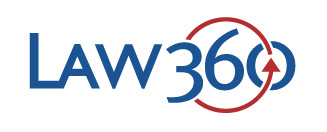By Nina Lincoff
April 24, 2015
Regulators announced Wednesday that a geographic targeting order was going to be put in place April 28, impacting almost 700 Miami businesses in the electronics exporting industry.
The Financial Crimes Enforcement Network order will require the targeted businesses in ZIP codes in Doral, Miami Gardens, Sweetwater, Medley, West Miami and Virginia Springs to submit a Form 8300 for all cash transactions over $3,000. Typically, that form is required for cash transactions over $10,000. The order will be in effect for 180 days.
Regulators and law enforcement are using the order to root out money laundering schemes connected to drug cartels like Los Zetas and the Sinaloa, according to FinCEN. Los Zetas and the Sinaloa are the largest drug cartels in Mexico.
The record-keeping requirement in the order is more expansive than what currently exists. Businesses need much more extensive identification for buyers, and information on whether or not the buyer is representing a third party.
“With the explosion of the cellphone industry, it has become quite normal for drug dealers and money launderers to use these types of businesses as a front. It’s a natural fit in their eyes,” said attorney Brian Bieber, a shareholder in the Miami office of law firm GrayRobinson, P.A.
There haven’t been a lot of these orders, so there is not a lot to measure against, said attorney Jared Dwyer, a shareholder in Greenberg Traurig’s Miami office and a former assistant U.S. attorney for the Southern District of Florida.
“By lowering the threshold to $3,000, by requiring the additional record keeping and by requiring the additional records at the time the transaction occurs,” Dwyer said, “they’re necessarily going to have an impact on money launderers that want to continue doing business in those ZIP codes.”
There was a similar GTO issued last year, targeting Los Angeles’ garment district. That order was preceded by some government enforcement actions, specifically search warrants and cash seizures from various businesses.
“With regard to the Doral [GTO], I don’t believe there has been the similar type of enforcement activities in that area,” Dwyer said.
The order is going to slow down transactions, he said. “It may not be an investigative tool, but more of a protective tool for the systems. In other words, to shut it off.”
Following the order, it’s possible that there will be the opportunity for the creation of a criminal case, Dwyer said.
Because the order affects hundreds businesses, it’s likely that some are legitimate businesses simply operating in targeted zip codes.
“I think there are businesses on this list that just happen to be on the exporting businesses but they are in that zip code. They’re legitimate,” Dwyer said.
“Most of these companies are unwittingly and unknowingly participating in these money laundering violations,” said Andrew Ittleman, a founding attorney with Miami-based Fuerst Ittleman David & Joseph. “Sometimes a random person comes and the Miami company doesn’t do its due diligence … because it’s a computer parts distributor, not a bank.”
The electronics exporting industry is a big one in Miami, and originated largely because electronics manufacturers didn’t want to distribute to countries they deemed were a credit risk. To fill the hole, smaller distributors set up shop in Doral, Sweetwater, etc., Ittleman said.
“Instead of taking that credit risk themselves, the Samsungs and Nintendos will sell to a distributor in Miami, which will then sell to Latin America,” Ittleman said.
These distributors will sometimes go to Latin America and check out the warehouses and businesses that are buying product from them, and determine whether or not a business is a good risk.
“The distributors are really good at it,” Ittleman said.
Although the Miami GTO was not precipitated by the same type of criminal investigation as the Los Angeles one, there has been a wave of simple forfeiture cases that have been launched by the South Florida Money Laundering Strike Force, Ittleman said.
“What has happened is that the Miami companies have found themselves in the middle of the money laundering event,” Ittleman said. After all, it’s easier to send a box of cellphones to a different country than it is a box of cash.
The impact of this order is threefold, Dwyer said. First, people fly into Miami from all over the world with up to $10,000 in cash, and they are allowed to buy cellphones and computers and videogame consoles to bring back to other countries. This order now requires anyone coming in with $3,000 or more in cash for electronics purchases from the targeted businesses to have proper documentation.
Second, the banks will be affected: “Banks who bank all these exporters are going to be impacted by the order, because now everybody is on notice that FinCEN believes the Mexican drug cartels are laundering money down here in Miami,” Dwyer said.
Third, the exporters themselves are going to be impacted. During the order, businesses will have to implement compliance programs and make sure their employees are familiar with every aspect of the order. Business have to make sure that they have the proper identification, keep the records for five years, and store them in an accessible place to produce for law enforcement, Dwyer said.
“The order has so many permutations through it that the exporters are going to have a lot of work to do to become compliant with the order itself,” Dwyer said.
To some extent, FinCEN is tipping its hand to any actual money launderers using the Miami electronic exporting industry.
“It is quite unusual for the government to come out and essentially stand on top of the tallest building in downtown Miami and scream to 700 businesses, ‘Watch out, we’re investigating you and this entire industry,’” Bieber said. “It’s quite rare and tells the story of a real problem occurring.”
To view original article, click here.









